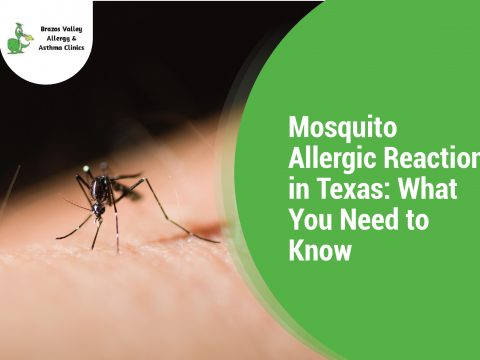- 979-485-9287
- office@bvallergy.com
-
 979-251-7804
979-251-7804
Food Allergies vs. Intolerance: What’s the Real Culprit?

Oak Season Blues: Are Your Allergy Meds up to the Task?
April 2, 2024
Common Pet Allergy Symptoms and How to Recognize Them
May 1, 2024Are you frequently battling digestive issues after meals? Do you experience unexplained rashes or discomfort? The culprit could be lurking in your diet. Understanding the difference between intolerance and allergies is crucial for managing health risks while exploring Texas’s culinary delights. We know good food is always tempting, even if it means it could trigger unexplained symptoms. So, before you follow your gut, let’s get to the bottom of it.
Understanding the Difference Between Intolerance and Allergy
Food Allergies
You’ve probably heard of food allergies before, but how exactly do they work? Food allergies involve the body’s immune system, while food intolerances don’t. When an individual with a food allergy ingests food that triggers their condition (an allergen), their immune system goes into overdrive, misidentifying harmless food proteins as threats. The immune system then produces immunoglobulin E (IgE) antibodies to combat foreign intruders.
The next time the person eats the trigger food, the IgE antibodies recognize the protein and signal immune cells to release histamine and other chemicals. These substances cause allergic responses, resulting in the typical food allergy symptoms. The intensity of the reaction can differ from person to person; some experience mild itching or swelling while others suffer potentially life-threatening symptoms.
Symptoms of food allergies may include:
- Hives or food allergy rash
- Itching or tingling sensation in the mouth
- Swelling of the lips, tongue, or throat
- Difficulty breathing
- Nausea or vomiting
- Diarrhea and abdominal pain
Food allergy self-care often involves avoiding the trigger food altogether and carrying an epinephrine auto-injector in case of accidental ingestion. If you suspect you have a food allergy, consult an allergist for proper diagnosis and management.
Food Intolerance
Food intolerance involves the digestive system instead of the immune system. It occurs when your body cannot digest certain foods well, leading to uncomfortable symptoms. This condition is commonly caused by enzyme deficiencies, where the body lacks the necessary enzymes to break down specific food components. For instance, a lack of lactase (the enzyme essential for breaking down lactose in dairy products) results in lactose intolerance. Undigested lactose can ferment in the gut without enough lactase, causing symptoms of food intolerance.
Another mechanism involves sensitivities to food additives or naturally occurring compounds in food. Some individuals, for example, may experience intolerance to histamine-rich foods, leading to symptoms similar to an allergic reaction. Unlike food allergies, food intolerance reactions are typically not life-threatening, although they can still significantly impact your quality of life.
Signs of food intolerance may include:
- Bloating
- Gas
- Abdominal pain or cramps
- Diarrhea or loose stools
- Nausea
The difference between intolerance and allergy lies in the underlying mechanisms. While food allergies involve an immune response, food intolerances result from enzyme deficiencies, sensitivity to food additives, or other digestive issues.
Read More: Know the Difference Between Wheat Allergy and Gluten Intolerance
Treating and Managing Food Allergy and Intolerance Symptoms

Successfully managing the complexities of food allergies and intolerances extends beyond recognizing specific trigger foods. Here are some effective strategies for managing and treating the symptoms associated with these conditions:
-
Dietary Modifications
Adjusting your diet to eliminate trigger foods is often the first line of defense against food allergies and intolerances. While some people can manage their diet well on their own, teaming up with a nutritionist is our top tip for optimal results. They craft personalized meal plans to match your nutritional needs, steering you clear of foods that might cause problems.
-
Medications
Allergists may occasionally prescribe medications to alleviate symptoms or manage reactions. Antihistamines can relieve itching, hives, and other allergic symptoms. For intolerances, experts may recommend anti-diarrheal medications to individuals experiencing gastrointestinal issues.
-
Epinephrine Auto-Injector
For individuals with severe food allergies at risk of anaphylaxis, carrying an epinephrine auto-injector is crucial. This life-saving device can quickly administer epinephrine in the event of a severe allergic reaction, buying valuable time until emergency medical help arrives.
-
Probiotics and Digestive Enzymes
Specific individuals experiencing food intolerances might find relief from bloating and gas by taking supplements such as probiotics and digestive enzymes, which can enhance digestive function. Make sure to consult your doctor if you are considering supplements.
-
Allergy Testing and Immunotherapy
If you have a confirmed food allergy, allergy testing can help identify specific allergens, allowing you to avoid them better. If you have severe allergies, your allergist may recommend allergen immunotherapy to desensitize the immune system over time, reducing the severity of allergic reactions.
Read More: Allergy Testing: Understanding the Different Methods
-
Lifestyle Modifications
Making lifestyle changes such as practicing proper food hygiene, reading ingredient labels diligently, and communicating your dietary needs to others can help minimize your risk of exposure to allergens and enable you to manage symptoms more effectively.
By adopting these approaches and collaborating closely with a trusted allergist, people with food allergies and intolerances can actively reduce the frequency and severity of their symptoms, enhancing their overall well-being. Keep in mind that managing food sensitivities is a journey, and you can confidently navigate it with the proper support and resources.
Unraveling the Mystery Behind Your Symptoms
Understanding the nuances of food allergies vs. intolerance empowers you to take control of your health. In steering clear of allergens or identifying trigger foods for intolerance, recognizing the signs and seeking appropriate care can make all the difference. If you’re experiencing persistent symptoms, don’t hesitate to contact an allergy clinic in Austin, like Brazos-Valley Allergy & Asthma Clinics. For expert guidance and support, schedule a consultation at 979-485-9287 or click the “Book an Appointment” button.
The next time you experience discomfort after a delicious meal in Texas, you’ll know how to digest the clues and respond with the right strategy. Listen to your body, seek expert help, and find the path to a happier, healthier you.




